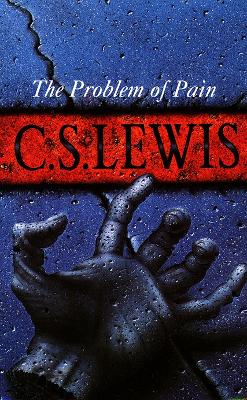Reviewed by brokentune on
http://brokentune.booklikes.com/post/703121/the-problem-of-pain
I first read The Problem of Pain when I was an impressionable teenager in search of the meaning of life. How I got to C.S. Lewis, however, is a long story that I'll reserve for another post/review.
Anyway, I loved the The Problem of Pain when I first read it. I couldn't put it down.
When I started clearing my bookshelves last year in attempt to de-clutter, I came across my old and dusty copy of the book again and started to re-read.
What I love about The Problem of Pain - actually, all of Lewis' books I've read - is his use of language and his use of similes, which make it easy to follow his argument.
In The Problem of Pain, Lewis elaborates on the meaning of divine goodness, human pain, animal pain, heaven, hell - not necessarily in this order, though - and tries to explain from his Christian point of view what divine love is, what pain is, why humans can feel pain, and that there is a divine purpose to suffering.
When I first read this almost twenty years ago, I could accept the possibility that there may be a substance to the arguments he puts forward. Having re-read this now, I still admire Lewis' use of language and the elegance of his argument but I find it very difficult to be persuaded by it. Now, the argument that there is a purpose to suffering that allows the individual to grow or improve spiritually seems little more than wishful thinking.
Of course, my take on this may sound rather pessimistic. However, where Lewis draws from Thomas Aquinas and other sources of formal religious Christian teaching, I feel much more aligned with other schools of thought that would choose kindness towards living beings over the particular form of patriarchal tyranny of divine love that Lewis describes.
(Sidenote: Btw Jack, how dare you say that the newt has no self! For all we know, he might.
Seriously, I'm not impressed by an argument that starts with the notion that we cannot know what God's intentions are or indeed know anything that is outside of the human experience, and which then categorically denies that non-human living beings have a notion of the "self". )
Reading updates
- Started reading
- 18 November, 2013: Finished reading
- 18 November, 2013: Reviewed
